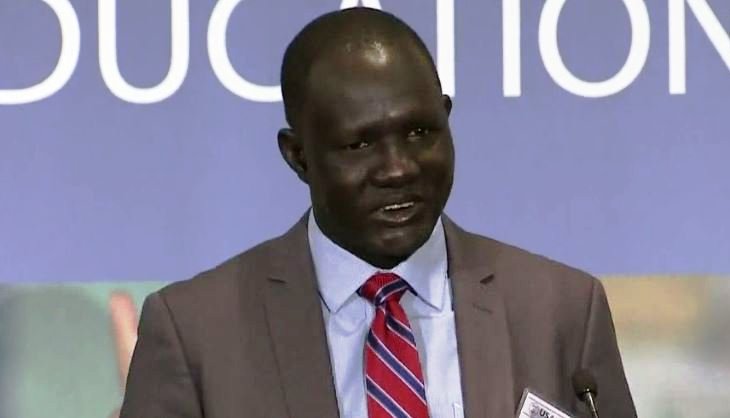Top official from leading think tank in S. Sudan resigns
November 25, 2021 (JUBA) – A top official at the Sudd Institute, a leading think tank in South Sudan has resigned, barely a week after the institution’s reopening.
Abraham Awolich, the Sudd Institute’s Managing Director, said the country has become a scene of “dictatorship” and vowed to oppose the “despotic” system.
“Reference to your letter dated the 2nd of August 2021, asking me to tender in my resignation from the Sudd Institute, and in line with the mission of the Sudd Institute, this note serves as my resignation both from the position of managing director and from the Sudd Institute entirely,” partly reads the letter extended to Sudan Tribune.
Awolich said the government has been turned into a tool to protect and preserve the seat of the president at the expense of freedom, democracy and rule of law.
“I am convinced with a shred of doubt that South Sudan has become another sad scene in the long episode of dictatorship in Africa and I am determined to oppose this dictatorship and authoritarianism with everything I have got,” the researcher noted in a letter addressed to the institute’s board chair, Pauline Riak.
It further added, “I also believe South Sudan has ceased to have a representative government to take and consume policy advice. I, therefore, do not see the effectiveness of providing advice to a government that has become an enterprise of the president and whose end game is to protect and preserve the president’s seat, all at the expense of citizens, democracy, and rule of law”.
The researcher-turned activist claimed President Salva Kiir’s grip on power has significantly “weakened” after 16 years at the helm of the country’s leadership.
He cited the weak economy, which has led to the depreciation of the local currency.
The Sudd Institute is an independent research organization that conducts and facilitates research and training to inform public policy and practice, to create opportunities for discussion and debate, and to improve analytical capacity in South Sudan. Its intention, it says, is to significantly improve the quality, impact, and accountability of local, national, and international policy and decision-making in South Sudan to promote a more peaceful, just and prosperous society.
(ST)

